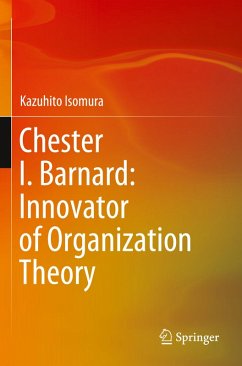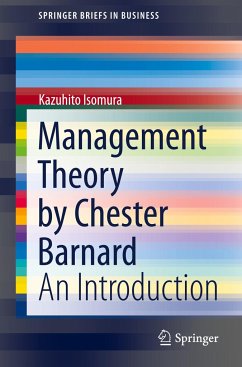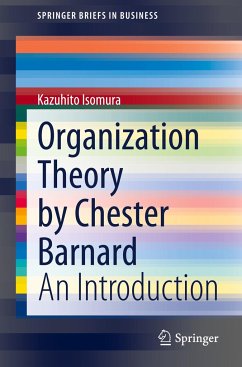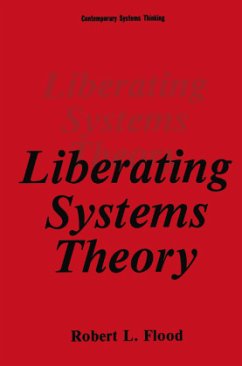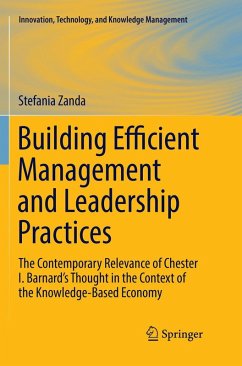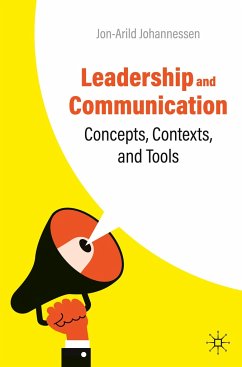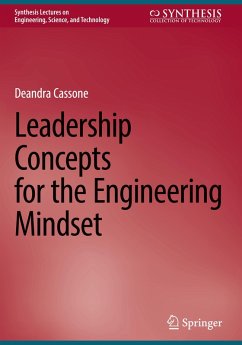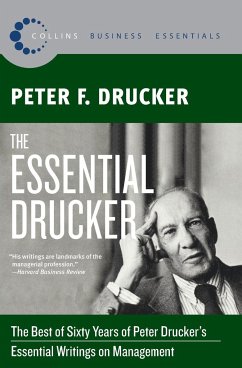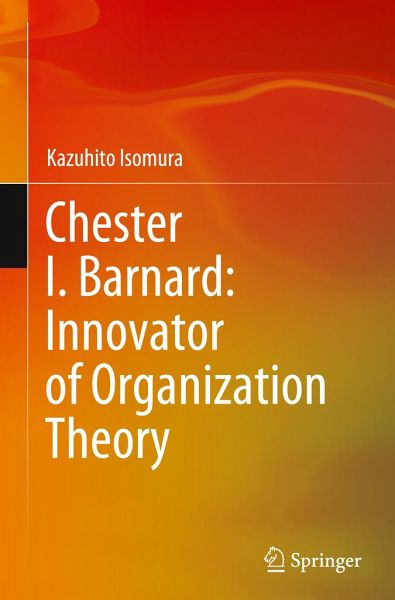
Chester I. Barnard: Innovator of Organization Theory
Versandkostenfrei!
Versandfertig in 6-10 Tagen
98,99 €
inkl. MwSt.
Weitere Ausgaben:

PAYBACK Punkte
49 °P sammeln!
This book looks at Chester I. Barnard's theoretical and practical contributions to organization theory by examining his life, career, experience, intellectual relationships, philosophy, method, and theory.Barnard (1886-1961) is considered an innovator in the field with the publication of his seminal work, The Functions of the Executive, in 1938. But why was Barnard able to publish such a groundbreaking book despite the fact that he was a practitioner, not an academic researcher? In pursuit of that question, this book carefully investigates the background of his ideas about management, such as ...
This book looks at Chester I. Barnard's theoretical and practical contributions to organization theory by examining his life, career, experience, intellectual relationships, philosophy, method, and theory.
Barnard (1886-1961) is considered an innovator in the field with the publication of his seminal work, The Functions of the Executive, in 1938. But why was Barnard able to publish such a groundbreaking book despite the fact that he was a practitioner, not an academic researcher? In pursuit of that question, this book carefully investigates the background of his ideas about management, such as his experience, philosophy, and method. It then traces the process of how Barnard built his concepts of organization as it examines his books, published papers, unpublished manuscripts, and correspondence and systematically summarizes how he built his theory of organization and management. Finally, the author explores how Barnard's theory has the potential to be developed andput into practice by examining his important works after his publication of The Functions of the Executive, which is well known as abstract and difficult. Readers of this present book will come away with a clearer and more systematic understanding of Barnard's theoretical and practical contributions to the field.
Barnard (1886-1961) is considered an innovator in the field with the publication of his seminal work, The Functions of the Executive, in 1938. But why was Barnard able to publish such a groundbreaking book despite the fact that he was a practitioner, not an academic researcher? In pursuit of that question, this book carefully investigates the background of his ideas about management, such as his experience, philosophy, and method. It then traces the process of how Barnard built his concepts of organization as it examines his books, published papers, unpublished manuscripts, and correspondence and systematically summarizes how he built his theory of organization and management. Finally, the author explores how Barnard's theory has the potential to be developed andput into practice by examining his important works after his publication of The Functions of the Executive, which is well known as abstract and difficult. Readers of this present book will come away with a clearer and more systematic understanding of Barnard's theoretical and practical contributions to the field.





